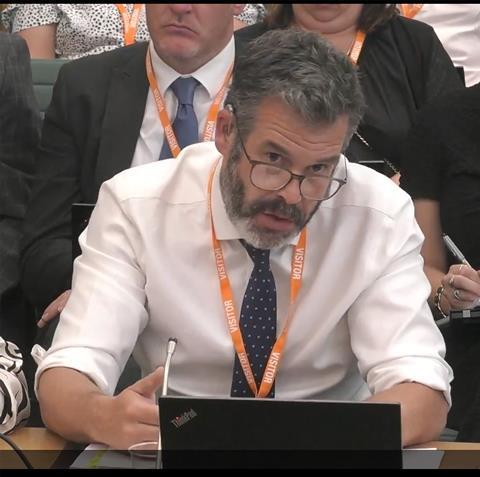MPs hear that the government’s approach to improving family court services for children is being impeded by information gaps and the lack of a joined-up plan to enhance data collection and analysis
A public spending review of the government’s approach to improving family court services for children has exposed a dearth of data that would enable a proper understanding of family justice delays and how they affect users.
The Ministry of Justice, HM Courts & Tribunals Service and Cafcass have made progress in improving their systems and making better use of the data they hold to inform decisions, the National Audit Office acknowledged in a report last month. But the watchdog said challenges with IT systems remain, highlighting significant data gaps and quality issues.
For example, Cafcass collects the age, gender and ethnicity of the children it supports, but HMCTS does not. It is not yet possible to follow a child through the family justice process.
‘These gaps in data hinder understanding of the causes of delays, or how the system may affect particular demographic groups differently. Many of the data issues are longstanding and well understood, but organisations do not yet have a joined-up plan to improve data collection and analysis across family justice,’ the NAO said.
The report prompted the House of Commons public accounts committee to embark on an inquiry.
'Since the volume of applications to the family court is driven by many factors outside of the control of the family justice system, there is no accurate measure of future demand. The paucity of data available also inhibits meaningful analysis of future demand'
Nuffield Family Justice Observatory
In its written submission to the probe, published this week, the Nuffield Family Justice Observatory (FJO) noted that the lack of consistent recording of the characteristics of children and parents in family law proceedings meant there was no regular analysis of case duration by different groups of children. Regular analysis could explain why, according to Nuffield FJO’s research, care proceedings take longer for black and Asian children.
‘Since the volume of applications to the family court is driven by many factors outside of the control of the family justice system (including pressures on families, the availability of family support services, perceptions of risk and associated practice in local authorities and attitudes towards and availability of alternative dispute resolution), there is no accurate measure of future demand. The paucity of data available to the family justice system also inhibits meaningful analysis of future demand,’ Nuffield FJO said.
The Law Society, in its submission, noted that the government does not collect data on the Qualified Legal Representatives (QLR) scheme.
While some data has been obtained through parliamentary questions, the Society said the data held by the Legal Aid Agency only includes the amount paid to QLRs, not the number of claims. No data is collected on the cases where a QLR cannot be appointed due to lack of availability and the case is either adjourned or judges conduct the cross-examination themselves to prevent further delays.
‘This is vital information as it shows whether or not the QLR scheme is currently meeting demand and the impact on access to justice,’ the Society said.
High-ranking officials were quizzed on the lack of data when they appeared before the committee this week. HMCTS chief executive Nick Goodwin (pictured below) told MPs the government is in a much better place now when it comes to data. A digitised system has been rolled out in public law, giving the government ‘richer, better data than we’ve ever had before’.

While the same cannot be said for private law, Goodwin said a fully digitised system will be rolled out shortly, providing access to ‘much better information’ on the protected characteristics of children going through the system and live information on where they are at. Not only will this allow HMCTS to conduct ‘problem analysis’, Goodwin said, but HMCTS and Cafcass systems will also be linked. This will enable the same data to be interrogated to understand the next steps.
The committee appeared unimpressed. Conservative chair Sir Geoffrey Clifton-Brown MP thought the NAO’s data findings were a ‘fair indictment’.
‘It certainly needs to be better than it is currently. I’m not being complacent about that at all,’ Goodwin replied. ‘What I would say is, there are plans to make it a lot better and in 12 months’ time they will be in place. We have much better information now on public law – on children’s circumstances, what’s going on with the case, number of experts and so forth. Over the next year, we will be rolling out a private law system and that will give us very much better information… I’m not at all complacent about what we have got now. But what I’m pointing to is, we’ve been working incredibly hard on something that will be really powerful in the future.’
No doubt the committee will check in 12 months’ time.































No comments yet